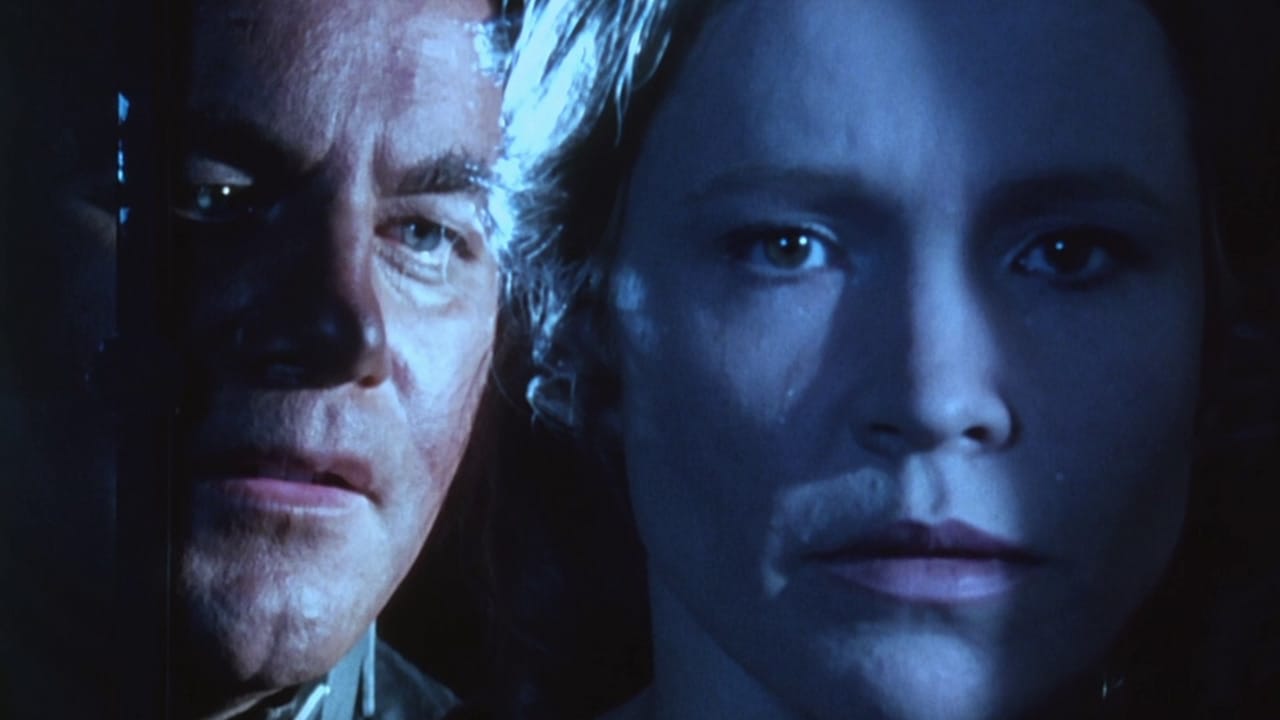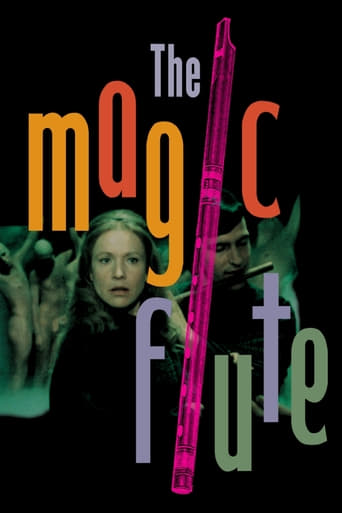Exoticalot
People are voting emotionally.
Matialth
Good concept, poorly executed.
Ezmae Chang
This is a small, humorous movie in some ways, but it has a huge heart. What a nice experience.
Payno
I think this is a new genre that they're all sort of working their way through it and haven't got all the kinks worked out yet but it's a genre that works for me.
Dr Jacques COULARDEAU
This film is mythical both because the opera by Mozart is a real prodigious miracle of naive purity in a century of pure violence and horror that will end up with the blood bath of the French revolution and Napoleon, but also because the adaptation of this opera to the silver screen by Ingmar Bergman is considered as unique and historic.Though he uses some special effects, the director uses first of all a whole set of machines and means that are stage tools more than screen effects but they are obviously made visible in their mechanisms. No secret, no hidden trick. I call a spade a spade. And at times the director plays with our senses so that the three angels now and then look like three girls and in other sequences like three boys. All the animals are obviously stuffed animals or human beings dressed in the loose skins of animals. That is supposed to be meant for children, but at the same time it creates a universe that could be magic like the famous Wonderland but is in fact friendly and reassuring like Winnie the Pooh. Then that enables the director to concentrate on the human dimension of the opera. If the affair between Papageno and Papagena and all their Papagenis is simple, easy-going, as clear as spring water, the affair between Tamino and Pamina is quite more difficult to come and get through all kinds of obstacles and thresholds that have to be stepped over in order for the two to finally get together. But I would like to insist on one particular element in the plot. Pamina, the daughter of the Queen of the Night is in fact kept prisoner by her mother as a vengeance against her father, Sarastro, who is the high priest of another religion than the religion of the triple goddess. He is the high priest of a temple dedicated to reason, to brotherhood, to what is quite clearly the 18th century ideal of free masonry. The Queen of the Night sounds like some kind of fable, fairy tale and is the last waning form of old paganism, of old animism that the triple goddess represents with its perfect form in the Ancient Greek mythology and its folkloric form in Germanic mythology. Shakespeare even turned them into the three weird sisters, three witches. Mozart is from his age but the mother absolutely wants her vengeance to be carried out by her daughter who is thus entrusted with killing her own father. Mozart is setting up the anti-Oedipal situation of a daughter killing her father to be the slave of her mother. It is so unnatural that we have the absolute right to wonder what was in Mozart's mind when he composed this opera. In 1693, at the end of the 17th century Marc-Antoine Charpentier and Thomas Corneille had composed and produced the very classic opera Medea that shows a similar vengeance from the mother against the father but this traditional story centers on the mother killing the children (two sons) to punish the father. Here Mozart distorts this tradition by building a totally psychotic situation that should normally lead to the worst possible tragic dramas. And yet he turns it around and makes it a victory of the reasonable and enlightened father over the vengeful and distorted-minded mother. But this is only possible because the child in question is a girl and not a boy which makes killing the father absolutely impossible since the father is the object of her primal desire. The most surprising element here is that Mozart seems to be following Jung and rejecting Freud. Mozart could not be that anachronistic of course since he could not know the future, but the director is quite another story.That leads to a double conclusion. Mozart probably had some problem with mothers since he was the victim of and at the same time the prodigy produced by his own father with no mother actually mentioned any time, but the director of the film makes it appear as if Mozart was symbolically assassinating his own father and yet saving him because of his great reasonable enlightenment. A very good adaptation of an opera to the silver screen and also a very good modern rewriting of the story and plot.The music is of course mesmerizing, though the Swedish language lacks some firm vowels and sounds, some clearer vocalic architecture due to the crushing of many vowels into some schwas hardly colored at times with some 'o' or 'a' or 'u' variations that make these vowels fuzzy and in contrast with the clear cut vowels of Papageno or Papagena. But of course we are biased by the fact we know the German version and the very rich vocalic architecture of this language.Dr Jacques COULARDEAU
Brent Trafton
This version of "The Magic Flute" is not only the worst production of Mozart's great opera that I have ever seen, it is also the worst video production I have seen of any opera.I'm a big opera fan and I have more opera on DVD than movies. The sets are cheap and cheesy. Papageno doesn't even have a bird costume. He is just dressed like some guy. The sound is in mono. The color is really bad. It is saturated in orange. Most DVD's from this period have the color digitally restored, but they did not bother with this one. Also, the language has been changed to Swedish instead of the original German.This is not a movie version of "The Magic Flute." It is a filmed performance and it is not a good performance and it was not filmed very well. You can pick any other available DVD of this opera and I guarantee it will be better than this one. My preference is for the version conducted by James Levine with sets by David Hockney.
Ed
I have mixed feelings about this film some of which include a great deal of irritation. Let's deal with the opera first: the libretto by Mozart's fellow Mason, Schikaneder, is not in the same league with those of Mozart's most famous librettist Lorenzo Da Ponte (Cosi Fan Tutte, The Marriage of Figaro, Don Giovanni.). In fact, it's downright silly in places, even allowing for the Masonic symbolism. By present-day standards, it is also quite sexist. Sarastro has abducted Pamina from her mother "The Queen of the Night" and tells her she should not be under her mother's influence but she "needs a man to guide her." (Tamino.) It is also racist: Monostatos, one of the villains, is a Moor. But we cannot expect an eighteenth century opera to be "politically correct".Of course, this opera also contains some of Mozart's (or anyone's for that matter) noblest music generally sung by Sarastro or his priests. But, due to the libretto, I find the opera a less satisfactory experience as a whole than the more realistic Da Ponte ones. (The "Flute", of course, is related to the German Singspiel with spoken dialog and is not an Italian opera with recitative.) The cast of this production is largely unfamiliar to Americans except for Håkan Hagegård, the excellent Papageno but Josef Köstlinger was also excellent as Tamino. The singing is not uniformly excellent, though, and the familiar problem of who should sing "The Queen of the Night" is not solved here. Birgit Norden, who plays the part, has too light a voice which should really be that of a dramatic coloratura. She generally gets the coloratura passages but is less successful in the longer notes which often sound shrill to me. (Mozart wrote these parts for specific singers; in this case it was one Josepha Hofer. He often changed arias when the singer changed.) Maybe her acting is also too "Lady Dracula" for me and might be more of a cold-blooded you-know-what. The Sarastro (Ulrik Cold) also seems to have a bit too light a voice for the part. And the production seems more than a little creaky though I think the Swedish translation doesn't help.The overture is played while the camera shows the utterly rapt faces of the audience especially the beatific one of a little girl and I find this particularly tedious after a while. In real life, audiences, particularly children, tend to talk or fidget through an overture, I think. The dragon (originally a snake.) which pursues Tamino at the beginning is really more funny than terrifying and makes Tamino seem like a crybaby.The later scenes I thought were generally better and dramatically more convincing. Although I agree that Bergman is probably the greatest living film director (his newest film "Saraband", from 2003, has been getting rave reviews.), I think this film has probably been rather overrated.
runenaljoss
i had heard much about ingmar bergman's magic flute on film and had wanted to see it for a while. what better opportunity then, to rent it as an intro to opera for a classical-music-neophyte-friend. the answer is: nay! trollfloetjen - in Swedish, which quelled my instinct to sing along with every Sarastro aria - is a product of its time, the mid 70's. while it is a fine adaptation of the opera for film, it's more cute than anything else, the imagery would serve your children very well. it is rather straight-forward mozart/schikaneder - only that the snake in scene i act i became an adorable dragon (not very fearsome, but very cute, actually!) and the first encounter of monostatos with papageno is acted quite in opposite to the words. (only papageno is afraid, rather than the mutual fear of the 'other'...)only bergman's skill can keep the whole venture from slipping into the campy... barely. act three, however, has some of the most arresting imagery to offer that you can hope for from opera on film: the ballett dancers enacting a Dante-esque inferno in the fire-test for tamino is stunning and actually quite disturbing. the water test is almost as effective... and the onslaught of the queen of the night's army makes for another juicy scene.to introduce yourself or especially your youngens to this so charming opera, you could not pick something better. for yourself, knowing the work well, or knowing bergman's work well, you might be a little disappointed. new insights are not likely gained. a DVD of an opera production might be more satisfying then!

